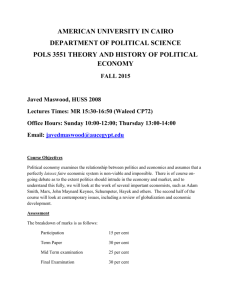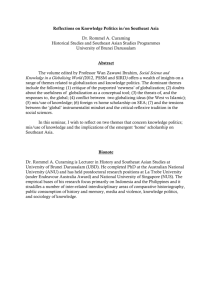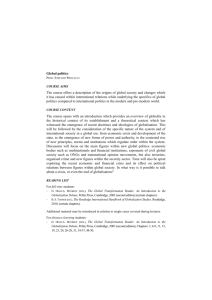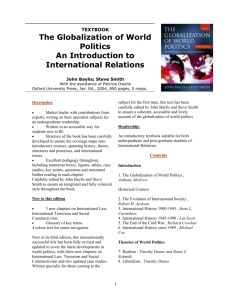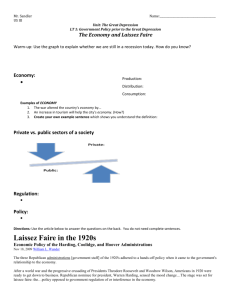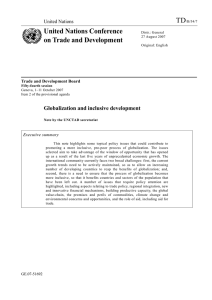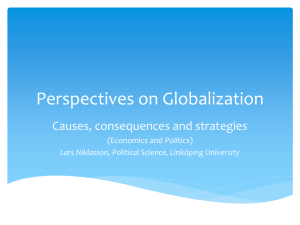POLS 351 THEORIES OF POLITICAL ECONOMY Spring 2013
advertisement
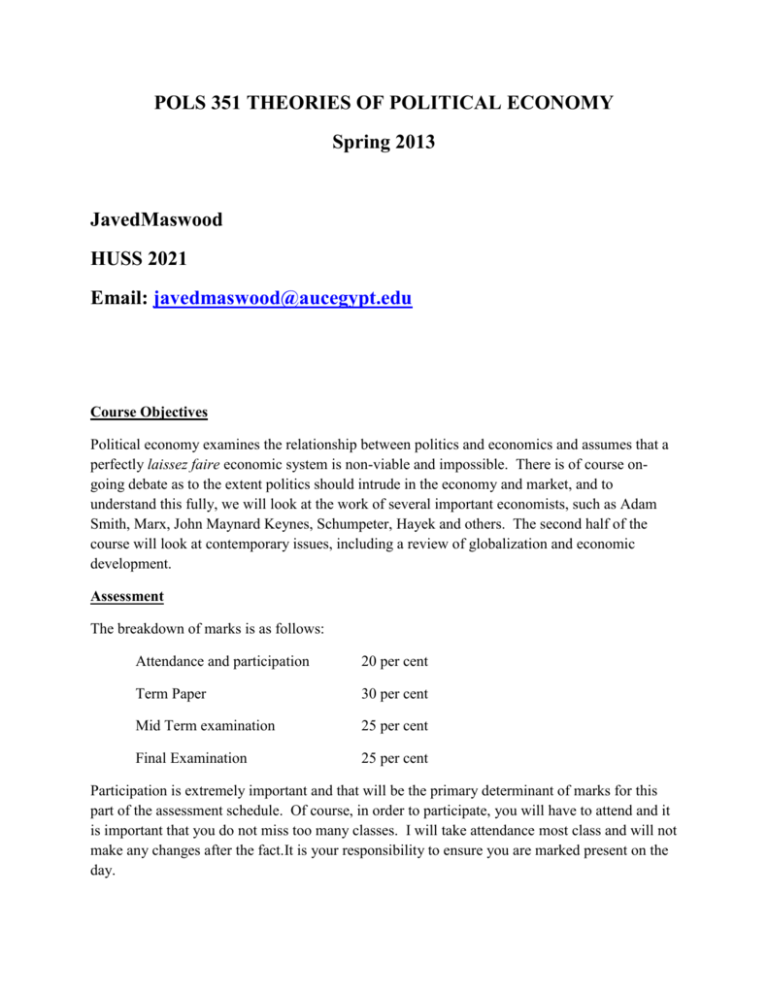
POLS 351 THEORIES OF POLITICAL ECONOMY Spring 2013 JavedMaswood HUSS 2021 Email: javedmaswood@aucegypt.edu Course Objectives Political economy examines the relationship between politics and economics and assumes that a perfectly laissez faire economic system is non-viable and impossible. There is of course ongoing debate as to the extent politics should intrude in the economy and market, and to understand this fully, we will look at the work of several important economists, such as Adam Smith, Marx, John Maynard Keynes, Schumpeter, Hayek and others. The second half of the course will look at contemporary issues, including a review of globalization and economic development. Assessment The breakdown of marks is as follows: Attendance and participation 20 per cent Term Paper 30 per cent Mid Term examination 25 per cent Final Examination 25 per cent Participation is extremely important and that will be the primary determinant of marks for this part of the assessment schedule. Of course, in order to participate, you will have to attend and it is important that you do not miss too many classes. I will take attendance most class and will not make any changes after the fact.It is your responsibility to ensure you are marked present on the day. Ask questions, whether in class or in my office. I am here to help in whatever way I can but you must take the initiative to approach me. Feel free to knock on my door, during or outside of office hours. The essay has to be structured around a hypothesis and it is advisable that you submit a statement of your hypothesis and its significance by end of February. This should be no more than a 100 words. Please remember also that you are ultimately the master of your grades. My only purpose is to confirm your level of performance. Do not expect me to alter grades unless you can show I have been unfair. Academic Integrity Policy The University has a zero-tolerance policy on cheating and plagiarism. Academic integrity is important and you should abide by established policy and guidelines. You can read the code of ethics at http://www.aucegypt.edu/resources/academicintegrity/ Course Outline and Reading 1. Introduction to course 2. Political Economy: An introduction The Debate Within Economics 3. An Overview of the Debate Through History 4. Laissez Faire and its Variants : The Science of Adam Smith Caporaso J. and David Levine, Theories of Political Economy, pp. 33-54 5. Marxist political economy Brue, S. and Randy Grant, The Evolution of Economic Thought, pp. 171-92 6. Alfred Marshall rediscovers economics as science Brue, S. and Randy Grant, The Evolution of Economic Thought, pp 275-300 7. The Great Depression Kindleberger, C., The World in Depression, 8. Keynes and the new debate in economics Cord, R., Reinterpreting the Keynesian Revolution, pp 1-11 9. Schumpeter 10. Hayek and Milton Friedman Brue, S. and Randy Grant, The Evolution of Economic Thought, pp. 497-503 11. Krugman and his contemporaries 12. Discussion Politics Weighs In 13. Politics in Turbulent Times: 1970s and early 1980s 14. Developmental States: Bringing the State Back In Ziya, O. “The Logic of the Developmental State” Comparative Politics, Oct 1991 15. Asian Financial Crisis and End of Developmental States Maswood, S., "Developmental States in Crisis", in Beeson, M. (ed.), Reconfiguring East Asia: Regional Institutions and Organisations After the Crisis, Curzon, London, 2002. 16. IMF Structural Adjustment: Nailing the Coffin Maswood, S., Int Political Econ. And Globalization, pp 83-123 17. Discussion: Triumph of Economic Liberalism and Muted Laissez Faire Issues in Contemporary Political Economy 18. Fiscal Crisis of the State O’Connor, J., The Fiscal Crisis of the State, pp xiii-12 19. Globalization Rodrik, D., The Globalization Paradox, pp. ix-23 20. Crises in the Global Economy: Role of Governments in Turbulent Times Rodrik, D., The Globalization Paradox, pp 207-232 21. Review
